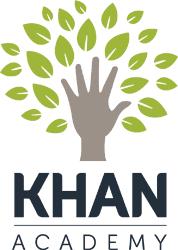Many people in the United States struggle with financial literacy. This phenomenon is demonstrated by the difficulty that some have saving money or even making their monthly bills. Unfortunately, a lot of people accept this struggle as a necessary part of life, but it is never too late to learn about good financial management.
Luckily, a number of excellent resources exist for people, especially online. Many of these resources and educational opportunities are free, so you have no excuse not to start learning about how to manage your finances more effectively. However, not all of these resources are created equally, so it is critical that you do due diligence when researching them.
Use the following list of resources as a starting point for finding the right program:
1. Khan Academy
 You might recognize the name of this organization, which supplements classroom education by streaming prerecorded lectures on a wide variety of topics, mostly in science and math. However, the website also contains a whole section based on finances and capital markets. While the material is presented at a university level, the information is broken down and explained thoroughly, and there is no charge for watching the videos. Some of the topics covered include banking, investing, tax planning, home finance, and debt relief.
You might recognize the name of this organization, which supplements classroom education by streaming prerecorded lectures on a wide variety of topics, mostly in science and math. However, the website also contains a whole section based on finances and capital markets. While the material is presented at a university level, the information is broken down and explained thoroughly, and there is no charge for watching the videos. Some of the topics covered include banking, investing, tax planning, home finance, and debt relief.
Khan Academy is a great resource if you have very specific questions you want answered, or you want to get a more generalized understanding of financial literacy. Sometimes, the videos can proceed beyond basic concepts, so you shouldn’t worry about not being able to follow everything that is said the first time you watch a video. Over time, as you become more literate, you will appreciate this depth of knowledge. Often, the more difficult concepts focus on the societal conditions of phenomena, such as inflation, rather than looking just at the personal impact.
2. Yahoo! Finance Education
If you learn better by reading than you do by watching a lecture, then you should check out Yahoo! Finance Education, which has one of the most complete and comprehensive collection of written treatments of financial management topics. The explanations are typically clear and concise, and can serve as a helpful guide for how to delve deeper into a particular topic. The website itself is set up sort of like an encyclopedia, and the content is written as such, so the vast majority of content is clear and fact-based. Because bias is so common in financial writing, an objective resource is very important for perspective.
The Yahoo! resource can be most helpful when you use it as a supplement to other literacy initiatives. As you work through other programs and encounter terms you don’t know, such as P/E ratio, you can look it up on this website for a concise, easy-to-understand description of the concept.
3. CNN Money’s Tutorial “Money 101”
 If you are looking for a basic overview of personal finance, Money 101 is a great option. The website offers tutorial-style lessons that slowly walk you through each key concept. Because this resource is very basic, it is ideal for financial novices. The lessons are laid out in a logical manner so that you can work through them systematically, building the foundation you’ll need for future learning. Lesson topics range from broad concepts, like prioritization, to very concrete ideas, such as finding the right insurance policies. Quizzes at the end of each lesson verify that you learned the important concepts and terms for each section.
If you are looking for a basic overview of personal finance, Money 101 is a great option. The website offers tutorial-style lessons that slowly walk you through each key concept. Because this resource is very basic, it is ideal for financial novices. The lessons are laid out in a logical manner so that you can work through them systematically, building the foundation you’ll need for future learning. Lesson topics range from broad concepts, like prioritization, to very concrete ideas, such as finding the right insurance policies. Quizzes at the end of each lesson verify that you learned the important concepts and terms for each section.
4. Purdue University’s Planning for a Secure Retirement
Purdue University’s Planning for Secure Retirement addresses one of the most anxiety-producing questions among Americans—how to retire. A free resource for the public, the program takes you through 10 modules that build on each other, teaching you how to obtain and invest enough money to have a secure, enjoyable retirement. The interactive quizzes presented in each module learn the concepts that you struggle with the most and then tailor the progress of the course to address these weaknesses. With the program, you get access to some helpful financial tools, such as risk tolerance calculators and personality profiles, which take some of the guesswork out of the process. The course is helpful for people of all ages, but younger people with a lot of time to save will benefit the most from completing it.
5. Dave Ramsey’s Seven Baby Steps
This solution does not focus so much on the theory as the practical advice needed to alleviate some of the most common financial issues. For those who feel like they are in a distressed situation, Dave Ramsey’s Seven Baby Steps may be the best place to start. The online resources give very simple, actionable tips about how to fix certain situations, such as having too much debt. The program acts less like a teacher and more like a brutally honest coach. If you choose to use this program, you may want to supplement it with another one of the resources on this list to get a better sense of how the situation started in the first place and why Dave Ramsey’s advice leads to a viable solution. This understanding will prevent you from repeating your underlying financial mistakes in the future.

